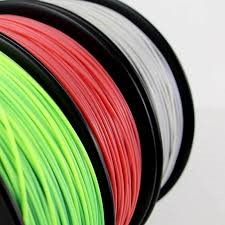PMMA - Polymethylmethacrylate

PMMA is a highly transparent thermoplastic polymer, obtained by polymerization of the methylmethacrylate monomer. Due to its transparency, aesthetics and scratch resistance PMMA might be considered the light alternative to glass. It is also sometimes called acrylic glass.
PMMA can be used as an alternative to polycarbonate (PC) if higher transparency, UV resistance and/or scratch resistance is required and high impact properties are not crucial for the application.
PMMA was first produced by the Rohm and Haas Company in 1933. Major PMMA brands are Altuglas, Plexiglas and Diakon.
PMMA is available as thermoplastic pellets, designed for injection, extrusion and blow- moulding.
The main characteristics of PMMA are the following:
- Outstanding optical properties.
- Transparency and gloss finish.
- Rigidity and dimensional stability.
- Hardness and resistance to scratching.
- Excellent resistance to sun rays (ultraviolet radiation) and weathering aging.
PMMA can be used as an alternative to polycarbonate (PC) if higher transparency, UV resistance and/or scratch resistance is required and high impact properties are not crucial for the application.
PMMA was first produced by the Rohm and Haas Company in 1933. Major PMMA brands are Altuglas, Plexiglas and Diakon.
PMMA is available as thermoplastic pellets, designed for injection, extrusion and blow- moulding.
The main characteristics of PMMA are the following:
- Outstanding optical properties.
- Transparency and gloss finish.
- Rigidity and dimensional stability.
- Hardness and resistance to scratching.
- Excellent resistance to sun rays (ultraviolet radiation) and weathering aging.
PMMA can be formulated to obtain special properties and effects:
- Impact modified.
- Food contact compliance.
- Suitable for medical applications.
- UV transparent.
- Improved chemical resistance.
- Resistant to gamma sterilisation.
- Matt and Frosted surface.
The above mentioned properties allow PMMA to be the preferred polymer for many applications into the automotive, lighting, building, cosmetic and medical industries
Moreover PMMA can be polymerized in spherical solid form (beads) or methacrylate bead polymers.
Depending by compositions, sizes, Tg and molecular weights PMMA beads can be used for different applications:
- Matting agent for thermoplastic compounds.
- Thickening agent for cast methylmethacrylate processes.
- Additive for coating systems for several decorative effects.
- Impact modified.
- Food contact compliance.
- Suitable for medical applications.
- UV transparent.
- Improved chemical resistance.
- Resistant to gamma sterilisation.
- Matt and Frosted surface.
The above mentioned properties allow PMMA to be the preferred polymer for many applications into the automotive, lighting, building, cosmetic and medical industries
Moreover PMMA can be polymerized in spherical solid form (beads) or methacrylate bead polymers.
Depending by compositions, sizes, Tg and molecular weights PMMA beads can be used for different applications:
- Matting agent for thermoplastic compounds.
- Thickening agent for cast methylmethacrylate processes.
- Additive for coating systems for several decorative effects.



